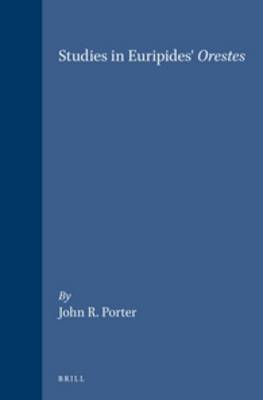Mnemosyne, Bibliotheca Classica Batava
1 primary work
Book 128
This work challenges recent critical assessments that emphasize the allegedly subversive elements in Euripides' play. The Orestes is found to present a curious melange of early and late Euripidean features, resulting in a drama where the tragic potential of Orestes' predicament becomes lost amid the moral, political and situational chaos that dominates the late Euripidean stage. Throughout, emphasis is placed on reading the Orestes in light of Greek stage conventions and the poet's own practice. Of particular interest are: an original examination, in light of Greek rhetorical practice, of Orestes' agon with Tyndareus; an analysis of the Phrygian's monody as a cunning hybrid of Timothean nome and traditional messenger speech; and a re-evaluation of the play's troubling deus ex machina.
